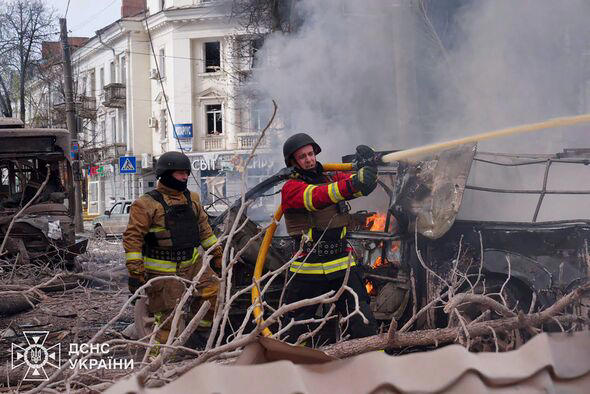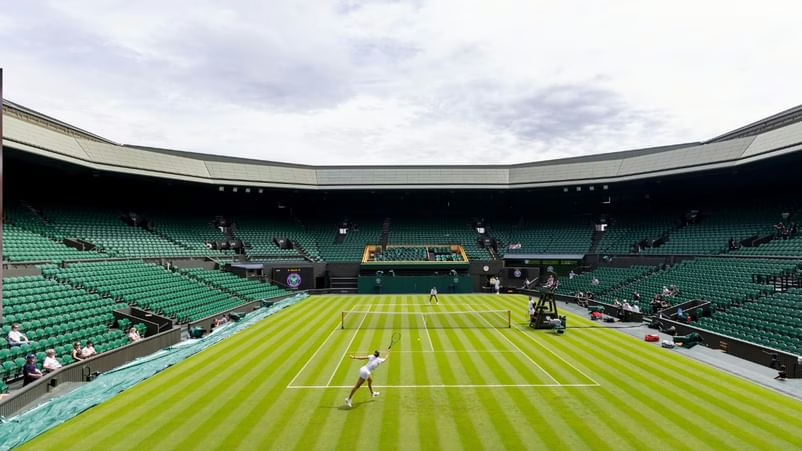Russia launched another wave of airstrikes against Ukraine on 13 April 2025, targeting key infrastructure in the northeastern city of Sumy and other regions. The attacks caused significant casualties and damage. Observers believe the offensive may be a strategic move by Russian President Vladimir Putin to strengthen his negotiating position ahead of any future peace talks. European nations swiftly responded, issuing strong condemnations and pledging continued support for Ukraine, with the United Kingdom standing out for its firm stance.
Putin Rejects Trump’s Mediation Efforts, Offers Only Temporary Concession
In February 2025, former US President Donald Trump held a 90-minute phone call with Putin, attempting to broker a ceasefire in the ongoing conflict. While Putin agreed to temporarily halt attacks on Ukraine’s energy infrastructure for 30 days, he refused to commit to a full ceasefire and demanded a complete halt to Western military aid to Ukraine.
Putin later praised Trump’s “realistic” approach and invited him to visit Moscow, while accusing Western powers of undermining efforts for peace. Despite this gesture, many analysts argue that Putin has no real intention of embracing a ceasefire and is instead using battlefield pressure to gain leverage at the negotiating table.
Today’s Strikes Seen as Tactical Pressure Before Talks
Although the Kremlin has not officially linked the latest airstrikes to the peace process, analysts widely interpret today’s escalation as part of a calculated strategy to coerce Kyiv and the West into concessions.
Putin has previously laid out several non-negotiable conditions for re-entering peace talks, including Ukraine’s complete withdrawal from four Russian-occupied regions and abandoning its bid to join NATO. On the other hand, Ukrainian President Volodymyr Zelenskyy signed a decree in 2022 banning negotiations with Russia under Putin’s leadership, resulting in a deadlock in diplomatic efforts.
UK’s Response: “Unwavering Support” for Ukraine
The renewed Russian assault prompted immediate condemnation from several European capitals. UK Prime Minister Keir Starmer issued a statement reaffirming Britain’s “unwavering support for Ukraine” and pledged to continue providing both military and humanitarian assistance.
The UK is also a key participant in a 25-nation “voluntary alliance” aiming to develop long-term security guarantees for Ukraine, particularly for the post-war period.
Former British Armed Forces Minister James Heappey publicly voiced his support for deploying Western troops to assist Ukraine, but stressed the need for caution to avoid triggering a broader conflict between Russia and NATO.
European Reactions Reveal Divisions
Beyond the UK, European responses have varied:
• Germany has delivered a third batch of Patriot air defence systems to Ukraine, enhancing its ability to counter Russian aerial attacks;
• Hungarian Prime Minister Viktor Orbán visited Moscow for talks with Putin on bilateral cooperation and the ongoing war in Ukraine;
• Dutch far-right party Forum for Democracy (FvD) MEP Marcel de Graaff called for an end to military support for Ukraine, controversially suggesting that Ukraine “should be allowed to fail quickly”.
While most European nations continue to back Ukraine, there are growing signs of internal division, with some political figures urging de-escalation and an end to Western involvement.
Discover more from “Bridging Hongkongers. Reporting Truth.”
Subscribe to get the latest posts sent to your email.




